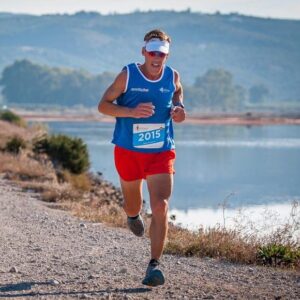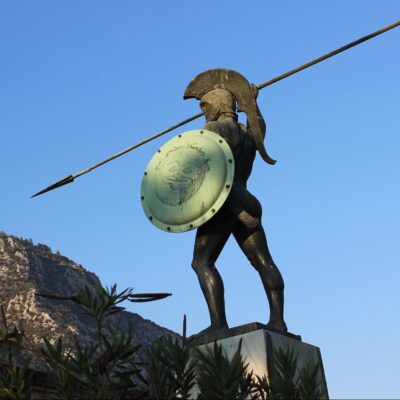Dean Karnazes explores his own Greek ancestry while consulting with the foremost scholars on Ancient Greece to tell the story of the Spartathlon, all while recreating the historic 153-mile run from Athens to Sparta in one of the world’s most impossible feats.
In 490 BCE, Pheidippides ran a similar route in 36 hours to recruit the Spartans into battle against the invading Persians. In doing so, he forever preserved Western culture and gave to us the modern marathon. In recreating the ancient journey, Dean consumed only foods available in 490 BC, such as figs, olives, cured meat, sesame biscuits called ‘itrion’, a sesame/honey paste called ‘pasteli’, and Sea Buckthorn fruits while he trained and prepared in traditional hoplite costume.
Dean signed up for the Spartathlon race in 2014. During training he could cope with his unusual fuel quite well, but during the Spartathlon race everything changed:
“I was supplied along the way by my crew, but by the time I picked up a bag of food in Corinth (about 50 miles in), the once delectable pasteli now tasted like maple syrup mixed with talcum powder, chalky and repulsively sweet, and I could no longer tolerate the stuff like I had during my training runs. I tried gnawing on a piece of cured meat, but it was rubbery and the gristle got stuck between my teeth. I had several figs, which seemed to sit best in my stomach. About 50 miles later, after climbing Mount Parthenion and plummeting some 1,200 feet from the summit, I was eventually deposited in the remote outpost of Sangas, where my crew was waiting for me, asking me if I could eat. I shook my head no, too exhausted to answer. I kept running,” Dean says.
The Road to Sparta offers you a rare glimpse into the mindset and motivation of an extreme athlete. It is sure to captivate and inspire readers whether they run great distances, modest distances, or not at all.



